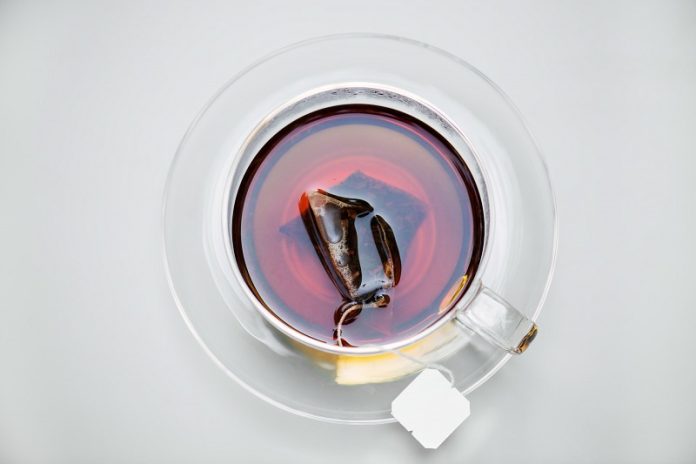
A recent study has revealed that some types of tea bags release millions of tiny plastic particles when used, and these particles can be absorbed by human intestinal cells.
Researchers from the Autonomous University of Barcelona (UAB) found that drinking tea brewed in certain commercial tea bags could expose people to microplastics and nanoplastics (MNPLs) that may spread throughout the body via the bloodstream.
The team analyzed tea bags made from polymers such as nylon-6, polypropylene, and cellulose, which are common in many commercially available products.
When these tea bags were steeped in hot water, they released billions of plastic particles per milliliter.
For example, polypropylene released about 1.2 billion particles per milliliter, while cellulose released 135 million, and nylon-6 released over 8 million.
These particles ranged in size from 136 to 244 nanometers, which are far too small to see with the naked eye.
Using advanced tools like electron microscopes and infrared spectroscopy, researchers identified the types and structures of the plastic particles.
The study is groundbreaking because it provides detailed insight into how these particles interact with human cells for the first time.
The researchers exposed human intestinal cells to these plastic particles in the lab to understand their effects.
They discovered that mucus-producing intestinal cells absorbed the most particles, with some even making their way into the cell nucleus, which contains genetic material.
This suggests that the presence of intestinal mucus plays a significant role in allowing the particles to enter cells.
The long-term effects of ingesting these particles are not yet fully understood, but the findings raise serious concerns about the safety of plastic food packaging and its impact on human health.
Chronic exposure to microplastics could potentially lead to harmful effects, but more research is needed to confirm this.
Plastic waste pollution is already a major environmental challenge, and this study highlights its growing impact on human health.
Food packaging, including tea bags, is one of the largest sources of microplastic contamination, with ingestion being a common route of exposure.
The researchers stress the importance of developing better testing methods to measure plastic contamination in food and beverages. They also call for stronger regulations to reduce plastic use in food-related products and to ensure safety for consumers.
As we rely more on plastic in everyday items, addressing this hidden source of pollution is essential to protect our health and the environment.
Next time you brew your tea, consider switching to loose-leaf tea or alternative packaging to avoid unnecessary exposure to plastic particles.
If you care about health, please read studies about how Mediterranean diet could protect your brain health, and the best time to take vitamins to prevent heart disease.
For more information about health, please see recent studies about plant nutrients that could help reduce high blood pressure, and these antioxidants could help reduce dementia risk.





